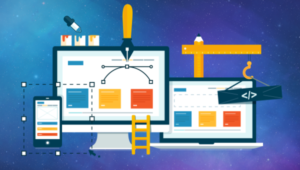Here are some facts about ‘millennials’.
They are the generation born between the early 1980s and the 2000s and include about 80 million of the world’s population, higher than any other generation. Millennials are the new leaders in technology as well as other industries and it’s speculated that they will comprise of about 75 percent of the global workforce in the next 10 years.
The comfort level of millennials with technology is evident from a report, which states that millennials are attached to their mobile devices so much that they are 15 times more likely to give up coffee and 7 times more likely to give up television than their smartphones. Research conducted by Oracle reveals that almost 55% of millennials say that a poor mobile app experience would make them less likely to use a company’s products and/or services.
Being a technologically fluent generation, they understand that global communication barriers have diminished and so have the traditional 9-to-5 work confines. As such, they have different expectations from their workplace as compared to the generations before them. They want the flexibility to do their work without being restricted to cubicles and to achieve a greater level of independence to work more productively. They believe that the choice to select their working hours and working locations will improve their work/life balance.
They want to be associated with businesses and brands that can help them nurture their skill sets and foster innovation at work, making the best use of technology. Millennials can be highly dedicated to their jobs and prepared to work beyond their normal working hours.
This flexibility of working from anywhere is helped by mobile devices and enterprise apps. Together they can help companies tap the potentials of millennials and achieve increased growth in their business.
Where Do Enterprise Apps Fit into the Big Picture?
Enterprise apps in work places are growing at unprecedented rates along side innovations in the field of information and technology. The benefits from enterprise apps include improvement in productivity, customer satisfaction, easier partner management and tracking of business performance. Enterprise apps are agile and this agility allows organizations to deliver solutions seamlessly from a single interface.
According to Fliplet, 60% of employees use mobile apps for work related activities and companies gain an approximate 240 hours of work per year from employees. Another report by CIO Insight states that 77% of employees use their own phones and 62% depend on personal tablets for work. 25% of enterprises will have their own app store by 2017 according to CMS Wire.
An enterprise app store can offer millennials as well as other employees a diverse variety of apps which foster productivity and strengthen performance.
The drawback is that whilst good enterprise apps are available, most do not live up to the expectations of this tech-savvy generation of employees, one-third of which avoid using certain apps just because they do not function well across multiple devices.
What about the enterprise apps which have made the cut? Let’s take a look at some enterprise apps, which made waves at Mobile World Congress earlier this year.
BlackBerry Experience Suite
BlackBerry has been long hailed as the device and platform for enterprises and its new software offering solidifies this claim. The BlackBerry Experience Suite is available for Android, iOS, Windows and Blackberry and offers deeply integrated productivity, communication, collaboration and security experiences to mobile devices on these platforms.
Dynamic Buy-Buyer
Dynamic Buy-buyer is one of the many business apps that were an outcome of the Apple-IBM partnership. With Apple’s design acumen and IBM’s expertise in enterprise the app is something that retail businesses will look forward to. Used for retail inventory management, the app brings together purchasing and stocking, streamlining the entire process. It offers tools to maximize cost per unit as well as the restocking of high-revenue items. It lets buyers get great deals on purchases made outside the standard buying cycle.
TunnelBear
It’s nearly impossible to work at enterprises without remote access to internal networks and this is where TunnelBear enters the scene. It simplifies setting up VPNs and makes it easy to share information. The TunnelBear app is a simple yet secure solution and enterprises can use the app to connect both iOS and Android devices to an independent network.
Predictions and Trends for the Future
Enterprise Apps Take over Consumer Apps
Businesses are now willing to pay for software that guarantees more productivity and gives them returns on their investment. 43% of enterprise app developers make more than $10K per month as opposed to 19% of their counterparts focused on consumer apps. With enterprise mobility experiencing a rapid growth, the revenue earned by enterprise apps will be more than that of consumer apps in the near future.
Make Way for Cloud-Based Apps
2014-15 brought a new wave of multi-cloud strategies and the trend will continue. This is due to the immense flexibility that ‘hybrid cloud models’ offer. They come with numerous benefits such as speeding up execution, lower costs and higher levels of services. Cloud-specific apps retain the same functionality and features across devices with different hardware configurations. This automatically translates to returns on investment. Take the case of EMC’s Enterprise Hybrid Cloud, which brings breakthrough capabilities for enterprises.
Wearables Have a Key Role to Play
The focus on apps optimized for wearables like Apple Watch and Android Wear will increase. Wearables will give new meaning to mobility by helping users integrate and sync their apps on with their work on the go. Wearable specific apps such as those available for Android Wear, will help enterprises improve their productivity and efficiency.
Cross-Platform Tools for App Development
According to research by VisionMobile, as many as 83% of developers are using third-party tools to develop apps. For instance the percentage of developers who use cross-platform tools have grown from 23% to 36% in a six months timeframe. These developers are using tools to deliver a consistent user experience across all platforms, irrespective of device fragmentation. This is exactly what enterprises are aiming for.
TechBeacon presents a list of common cross-platform development tools used for enterprises, which includes the following:
- Adobe: Adobe’s PhoneGap Build is widely used by developers for cross-platform development.
- Appcelerator: Appcelerator has an open and extensible environment with an open source SDK that provides support for more than 5,000 devices and OS API, the Eclipse-based IDE Studio, and the MVC framework Alloy.
- Xamarin: Xamarin can build native apps for iOS, Android and Windows platform and apps tested on scores of devices via its cloud service.
- iFactr: iFactr requires minimal training from developers and can be used to create quick prototypes for feedback. It can be used with Xamarin and provides support for PhoneGap.
- Kony: Developers can scale Kony‘s cloud services and adjust them on demand. Testing tools and analytics are embedded in Kony, which is an excellent tool for organizations with diverse devices that require integration with SAP and Oracle backends.
- Alpha Anywhere: Alpha Anywhere uses JavaScript and HTML5 to create cross-platform apps. It can be used to create offline apps, something which most enterprises require.
Security Will Take Precedence
According to a Gartner report, more than 75% of mobile apps fail basic security tests. The report is old, the threat is not. Security is something that needs to be addressed by developers before anything else and this is evident from the latest operating system versions from Apple and Google, which have better security protocols than before.
Challenges of Enterprise App Development
Enterprise applications must be flexible and adaptable to cater to the needs of a dynamic business environment, the biggest challenge that hounds enterprise app developers is security. Whilst developers are now better equipped to combat security breaches, the same technologies give rise to newer, more complex security threats. Security loopholes can be handled by building security aware software with controls at every level. The drawback is increased expense when enterprises are always on the lookout for economical alternatives.
Conclusion
Despite the extra requirements and steps needed, enterprise app development is a lucrative area of sometimes overlooked by app developers. I hope this article gave a good overview of the market and the demands of future employees.
I would love to hear your opinions, experiences and thoughts.
Jaykishan Panchal is a content marketer at MoveoApps, an apple watch app development company. He enjoys writing about Technology, marketing & industry trends. He is tech enthusiast and loves to explore new stuff.




